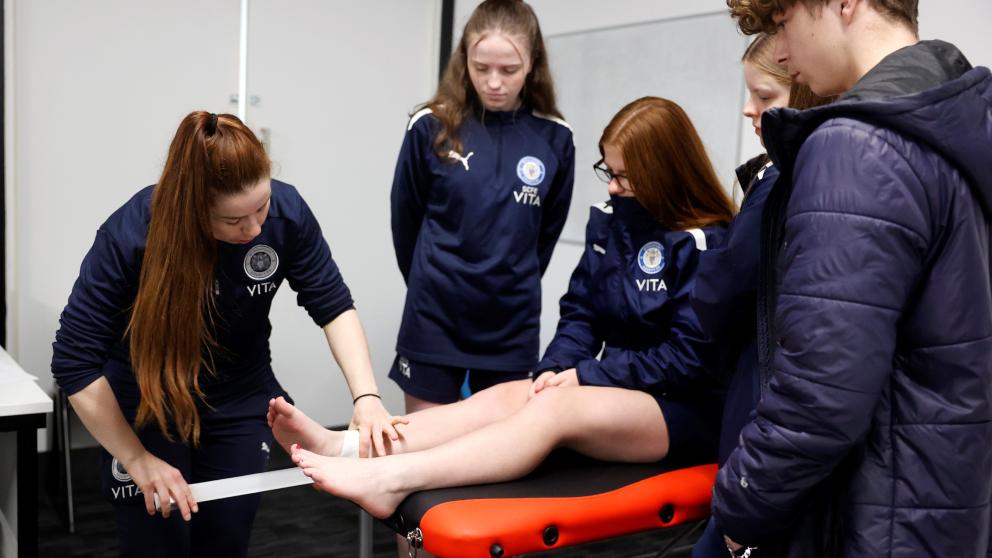Jake Wyatt - BSc (Hons) Physiotherapy
We are proud to be one of the leading providers of physiotherapy education in the UK, ranking first place overall in the North West (The Guardian) and first in England for ‘Teaching’ and ‘Student Experience’ (The Times). Hear from Jake, Physiotherapist degree apprentice and Therapy Assistant at the NeuroMuscular Centre, about his experience coming work with study at the University of Salford.
Why did you choose the degree apprenticeship?
My background is in Sports Therapy and I did my first degree at 18. I came out of university as COVID hit so nothing was really available. I did a bit of work in the private sector and found out about the NeuroMuscular Centre through a mutual friend. I applied and here I am four years later.
I approached my Manager a couple of years ago as I wanted to progress. I knew you could do a Physiotherapy degree full-time and part-time, but I had no idea an apprenticeship like this was on offer. After I did some research, we discussed the options and thought this programme was a great way of learning whilst working full-time, especially with lifestyle changes for me at the time. I didn't want to drop out of full-time employment to do a masters for two years, so the apprenticeship was a nice alternative to progress into the role of a Physiotherapist as well as doing my day-to-day job and paying the bills. I wouldn't have chosen anything else. For me, it fits perfectly and it fitted into work life here at the NeuroMuscular Centre as well.
What does your apprenticeship involve day-to-day?
I'm at the University for two half days a week. Day-to-day, my role at the Centre has slightly changed since starting the apprenticeship. Now I do assessments with people who are new to the Centre and annual reviews with current clients. The initial reviews that I'm doing are to get a good practice for when I qualify so I can step straight into that role and are not something I would have done as a Therapy Assistant.
At University, we’re covering respiratory and cardiac modules at the moment. That's been really nice for me personally. My background is tailored to more musculoskeletal health, so I've not covered respiratory in much depth before, and I’ve had the chance to gain new knowledge.
Looking back over your apprenticeship so far, how have you found the whole experience? The course has been a good balance between working and studying, and it’s really helped to build my confidence. In terms of my development over the last two years, it's nice to see where I'm progressing and adding new skills to my set, as well as refreshing the skills I've learned from my previous degree. Then I get to apply them to my work at the NeuroMuscular Centre straight away. For example, the respiratory module that I’ve covered over the last 12 weeks, I can put that learning into practice and refer service users on so they can get the additional care they need. I feel like I wouldn't have picked up some signs and symptoms initially without the modules that we've been doing at University.
How would you describe the support that you've received from the University?
I do feel supported, especially with the regular progress review meetings where I can discuss any issues and track my progress. There’s always someone to talk to if I need to and communication has been very good. It's been great and I get on well with all the lecturers - they're all down to earth and understand that we’re balancing our studies with work.
What would you say to someone considering an apprenticeship?
Give it a go! For me, it’s been great balancing everything and it’s given me the opportunity to progress while still working full time and getting that experience. I'd highly recommend it for people like myself that have done a degree before, or even some people that don't have a background in this sort of setting. Before you start you might think four years is a long time but I’m two and a half years in and it’s flown by. You're not getting bombarded with too much, but it still allows you to work full time as well as studying.
Do you have any advice for future apprentices?
Just stick with it. It's a challenge to get back into the rhythm of academic writing and work life, so it can be tough initially. It’s key to find that routine that suits you best and now, for me, it just feels natural.



